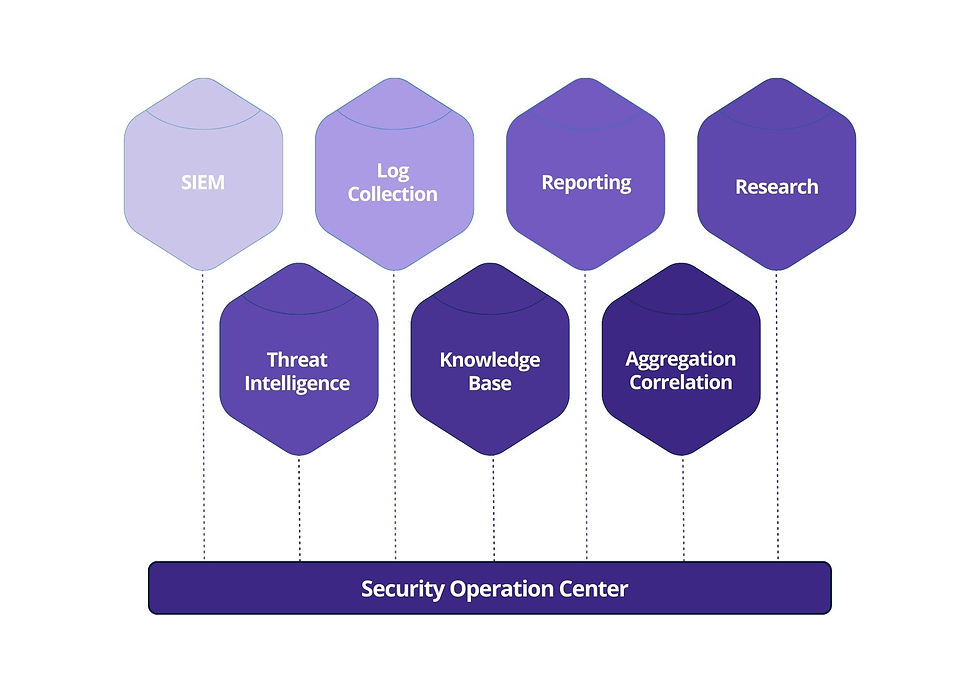
Cybersecurity has become an increasingly important issue today, as the prevalence of digital technology and the internet have made us more vulnerable to cyber-attacks. With the rise of sophisticated cyber threats, businesses of all sizes and industries face increased risks of data breaches, hacking, and other cyber-attacks that can have serious consequences.
This technical article explores the role of a SOC (Security Operations Center) Analyst in mitigating cyber threats and how NSPECT.IO, a marketplace for connecting cybersecurity solution providers, enterprises, and startups, can help businesses protect themselves against these threats. We will delve into the responsibilities of a SOC Analyst, the importance of cybersecurity in the modern world, and the technical aspects of how NSPECT.IO can connect businesses with the proper cybersecurity solutions to secure against cyber threats. We will also provide code examples and technical details to help readers better understand the topic.
You can check this link: Manage security and logs.
What is a SOC Analyst?
In the cybersecurity industry, a SOC Analyst is a highly skilled professional responsible for monitoring, detecting, analyzing, and responding to security incidents within an organization. Their main objective is to ensure the organization's digital assets and infrastructure remain secure from cyber threats.
The role of a SOC Analyst is crucial in today's world, where cyber threats are evolving and becoming increasingly sophisticated. SOC Analysts are critical in mitigating cyber-attacks and minimizing the damage caused by such incidents. They are responsible for monitoring and analyzing data from various sources, including network devices, firewalls, and intrusion detection systems, to identify potential security incidents.
The importance of SOC Analysts in the cybersecurity industry cannot be overstated. They help organizations protect their data, systems, and networks against cyber threats and help ensure that business operations continue uninterrupted. SOC Analysts are highly skilled professionals with expertise in various cybersecurity areas, including incident response, threat hunting, and vulnerability management.

Some common tasks that SOC Analysts perform include:
Monitoring and analyzing network traffic to detect potential security incidents
Investigating alerts generated by security tools and technologies
Conducting vulnerability assessments and penetration testing
Developing and implementing security policies and procedures
Participating in incident response and recovery efforts
Maintaining and updating security tools and technologies
Overall, SOC Analysts are a vital component of any organization's cybersecurity strategy, and their role is becoming increasingly important in today's digital landscape. By proactively monitoring and responding to potential security incidents, SOC Analysts help ensure that organizations can operate securely and efficiently.
SOC analysis is a critical process in the cybersecurity industry that involves monitoring and analyzing security events and alerts to identify potential threats and vulnerabilities. SOC analysts work in a Security Operations Center (SOC) and identify, investigate, and resolve security incidents in real time.
What is the Role of a SOC Analyst?
The role of a SOC Analyst is the entry-level position within a SOC. They are responsible for monitoring security systems and identifying potential security incidents. This includes analyzing security alerts, investigating potential security incidents, and escalating incidents to more experienced analysts or other teams if necessary.
The tasks of SOC Analyst typically involve monitoring security systems and analyzing security events, conducting initial triage of security incidents, escalating security incidents to higher-level analysts, and generating reports on security incidents and trends. They also work to identify potential security threats and vulnerabilities, and to develop and implement security solutions to mitigate those threats.
To become a SOC Analyst, candidates typically need to have a strong background in cybersecurity, including experience in network security, threat analysis, and incident response. They should have a strong understanding of security technologies and protocols, such as firewalls, intrusion detection systems, and SIEM solutions. In addition, SOC Analysts must possess strong analytical and problem-solving skills, as well as the ability to work effectively under pressure and in a team environment.
SOC Analyst can be a great career choice for individuals who are passionate about cybersecurity and have a desire to help protect organizations from cyber threats. With experience and further training, SOC Analysts can progress to more senior-level roles, such as SOC Manager or Security Analyst, and can also specialize in areas such as threat hunting or penetration testing.
You can check this link: NSPECT.IO Marketplace
